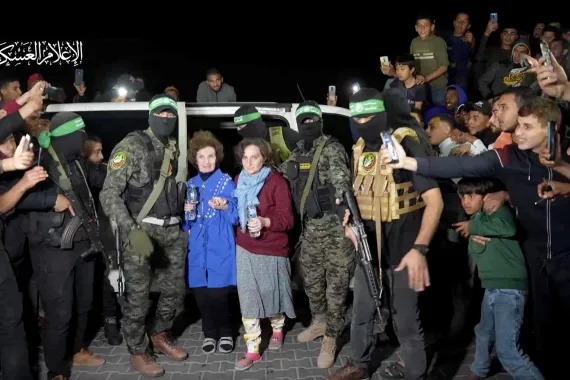In a precarious diplomatic climate, Israel and Hamas announced an extension of their truce just moments before its expiration, leaving the details of an official agreement shrouded in ambiguity. The ceasefire, which temporarily halted the conflict that erupted on October 7, has brought a respite to the region, but the path forward remains uncertain.
The Israeli military declared an “operational pause” extension without specifying the duration, stating, “In light of the mediators’ efforts to continue the process of releasing the hostages and subject to the terms of the framework, the operational pause will continue.” On the other side, Hamas confirmed an agreement to “extend the truce for a seventh day,” offering no further elaboration.
Qatar, leading the negotiations, confirmed the extension until Friday. The pressure to prolong the pause arises from the need for additional hostage releases and the delivery of aid to the devastated Gaza Strip. US Secretary of State Antony Blinken’s arrival in Israel for talks underscores the international interest in resolving the conflict.
The truce, initiated on November 24, temporarily halted hostilities that resulted in the deaths of 1,200 people, mostly civilians, according to Israeli authorities. In response, Israel’s air and ground campaign in Gaza claimed nearly 15,000 lives, predominantly civilians, according to Hamas officials, leaving large parts of the territory in ruins.
The terms of the truce allow for extensions contingent on Hamas releasing ten hostages daily. Despite an offer from Hamas to prolong the pause by four days and release seven hostages, along with the bodies of three individuals killed in Israeli bombardment, the extension was not granted, leading to uncertainties about the future of the ceasefire.
With just an hour remaining before the truce expiration, both sides expressed readiness to resume hostilities. Hamas’s armed wing instructed fighters to “maintain high military readiness… in anticipation of a resumption of combat if it is not renewed.” The Israel Defense Forces (IDF) spokesperson warned of a swift return to operational mode if the truce lapsed, indicating a potential escalation in the conflict.
Overnight, ten Israeli hostages were freed within the deal’s framework, while four Thai hostages and two Israeli-Russian women were released outside the arrangement. The International Committee of the Red Cross facilitated the handover of hostages, bringing moments of joy and relief to families.
US President Joe Biden expressed his satisfaction with the release, emphasizing the meaningful results achieved through the truce. Meanwhile, Israel’s prison service reported the release of 30 Palestinian prisoners, including prominent activist Ahed Tamimi.
Despite these positive developments, calls for a more sustained humanitarian ceasefire are growing. UN Secretary-General Antonio Guterres emphasized the need for a “true humanitarian ceasefire,” citing the dire situation in Gaza as an “epic humanitarian catastrophe.” China, represented by its top diplomat Wang Yi at Security Council talks, echoed the demand for an immediate “sustained humanitarian truce.”
As the delicate diplomatic dance continues, the extension of the truce brings temporary relief but leaves open questions about the long-term prospects for peace in the region. The international community closely watches these developments, urging all parties to work towards a more enduring resolution to the conflict.

